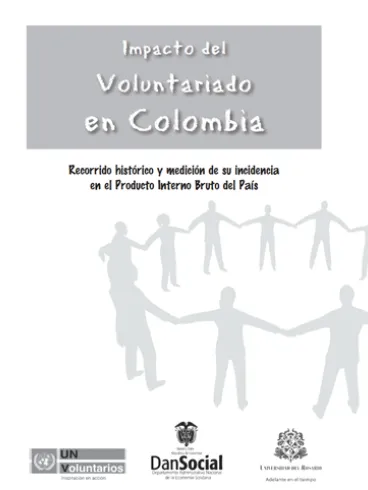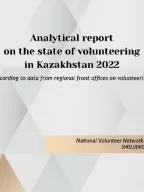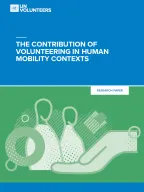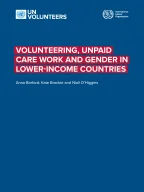
Impact of volunteering in Colombia
Fast read
-
This study maps the status of volunteering and the volunteering landscape in Colombia.
-
It examines the different forms and functions of volunteering, the key actors and organizations and the normative and legal framework supporting volunteering activities. Using official survey data, the study looks at the economic contribution of volunteering in the country.
Summary
The study found that voluntary action contributes significantly to the social and economic development of the country and that legal frameworks supporting volunteering play an important role in facilitating voluntary activities. For instance, the current legislation on volunteering, which focuses on promoting social action and citizen participation, has led to the growth of grass-roots and volunteer-involving organizations and an increase in voluntary activities. These voluntary actions have had a positive effect on the country’s GDP: an increase of 1 per cent in the number of volunteers could lead to an increase of 0.021 per cent in GDP. Similarly, an increase of 1 per cent in the number of volunteer-involving organizations could lead to an increase of 0.5 per cent of the GDP.
The study provides governments and other actors with insights on the scale of the volunteering sector in Colombia and outlines recommendations on how to best engage with volunteers to promote social action and citizen participation in development processes.




















